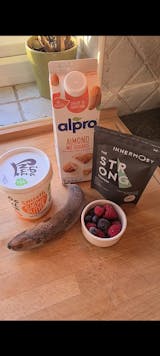Everyone’s talking about sustainability. In every sphere, in every industry, sustainability seems to be the topic du jour. And thanks to the ongoing pandemic, the environmental issues that our planet and society was already facing have been unexpectedly magnified.
Now more than ever, we’re realising the consequences that our actions have on the future of the planet, and the choices that we make in all aspects of our lives are becoming more and more critical by the day.
The world of fitness is no exception. The UK fitness industry is one of the biggest in Europe, in second place to only Germany, so the impact we have in this area is paramount.
Over the past few years, a whole host of brands and companies in the industry - big and small - have been working to make the fitness space more sustainable and ethical. Not just for the benefit of the planet, but for us as individuals. However, we know that if you aren’t so well-versed on the topic of sustainability, it can be difficult to know where to start.
So with that in mind, we’ve put together a list of five easy steps you can follow if you want to know how you can train more sustainably. Mother Earth will thank you later.
Sustainable activewear
Activewear. It’s our favourite type of clothing, even more so since lockdown. According to GlobalData, the UK sportswear market is forecast to grow by 20.9% out to 2023 to reach £6.7bn. That’s a lot. So the choices we make when buying our gym gear are pivotal.
Instead of fast fashion brands or global high street labels, opt instead for local or independent, ethically made, sustainable brands that don’t contribute to the huge amounts of waste created by the fashion industry.
Think leggings made from recycled plastic bottles and total supply chain transparency. What’s not to like? Some of our personal faves out there right now are Girlfriend Collective, TALA, Perff Studio and Pangaia.
View this post on InstagramMoss — goes great with nature and @simply.baz 🌿
A post shared by Girlfriend Collective (@girlfriend) on
Recycle your old gear
If you’re a bit of an activewear hoarder (we won’t judge) it might be time for a clear out. But did you know that 350,000 tonnes of used but still wearable clothing goes to landfill in the UK every year?
That’s around £140 million worth of clothing wasted. Instead, recycle or donate your old gear. Initiatives like Nike's Reuse-A-Shoe programme takes your used shoes, recycles them and gives them a new life. While Adidas' trade-in option lets you send them any old gear (used or unused), and they’ll then reward you with points to put towards a new purchase. It’s a no-brainer.
Be more plant-based
Incorporating more plant-based foods and meals into your diet has become one of the biggest health trends of the past few years. In fact, interest in 'veganism' and eating plant-based increased seven fold in the five years between 2014 and 2019, according to Google Trends.
Eating more plant-based meals is not only beneficial to your body (just think about all that natural goodness), it’s also more sustainable for the planet and the beings that inhabit it.
To get started, why not try Meat-Free Mondays once a week? There’s many misconceptions about eating plant-based, and getting enough protein doesn’t always mean shoving in the steaks. Try our delicious recipe for lentil and mushroom bolognese if you’re in need of some inspiration.
And don't forget that many of our Innermost products are also vegan. If it's good enough for GQ and Men's Health, we know you'll love it too.
Cut that carbon footprint
In 2017, greenhouse gas emissions from road transport made up around a fifth of the UK’s total GHG emissions. So if you’ve been driving to the gym, think again. Luckily, there are plenty of ways we can cut our carbon footprint in relation to our training.
Take public transport, cycle, walk or even run to the gym - who doesn’t want to get that extra workout in? Motivate yourself by downloading apps like Strava or Nike Run Club to track your movements and compete with friends. Now’s your time to show off.
Spread the word
Last but not least, one of the best things you can do for the sustainability movement is spread the word.
Talk to friends and family about your sustainable finds, follow new brands on social media and share their content wherever you can. There are also plenty of sustainable fitness blogs out there to keep you informed and entertained while you learn.
Check out a few of our favourites here:
Now it's time to put in the work. We'd love to hear how you get on with these suggestions for incorporating more sustainable choices into your lifestyle and fitness routine, so hit us up in the comments below.























